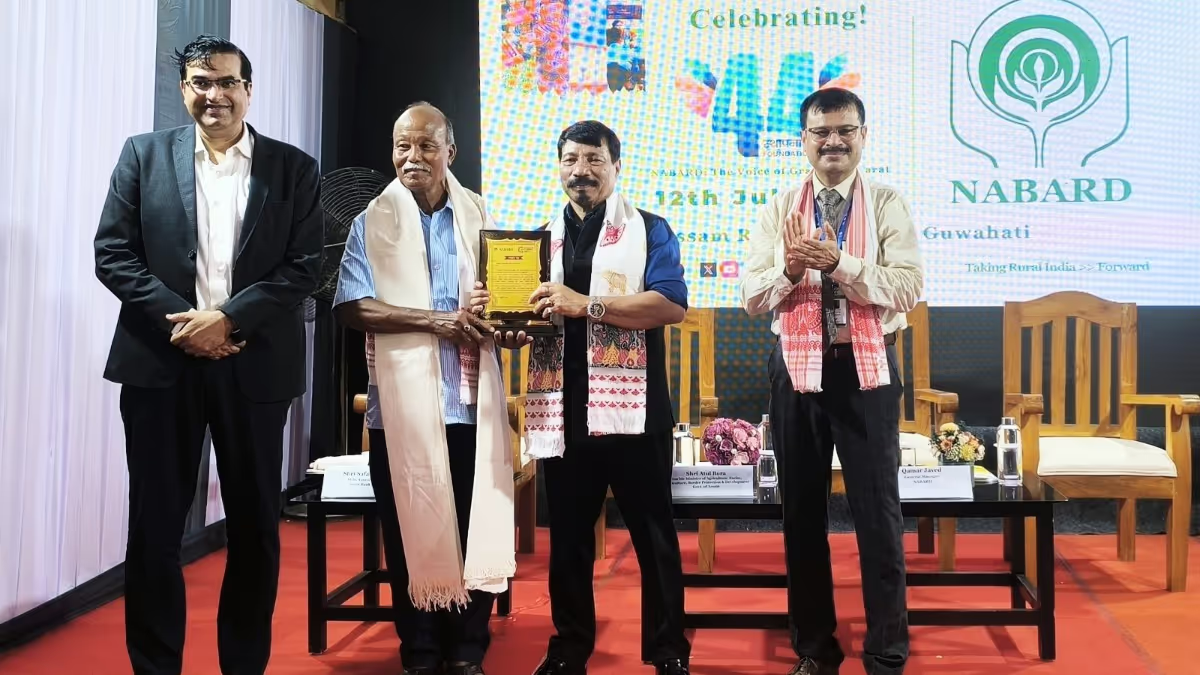The National Bank for Agriculture and Rural Development (NABARD), Manipur Regional Office, recently commemorated its 44th Foundation Day, highlighting decades of profound contributions to rural development across the state. This significant event underscored NABARD’s pivotal role in fostering financial inclusion, sustainable agriculture, and robust rural infrastructure, laying a crucial foundation for equitable growth that indirectly supports the broader vision of resilient and eco-friendly urban-rural ecosystems.
The celebration, graced by eminent dignitaries including Dr. Anupam Mishra, Vice Chancellor of Central Agricultural University, Imphal, served as a platform to acknowledge NABARD’s multi-faceted impact. Dr. Mishra lauded the institution’s comprehensive efforts, which span financial services, critical rural infrastructure development, the strengthening of cooperative societies, and unwavering support for grassroots organisations. These initiatives are fundamental to empowering rural communities, reducing urban migration pressures, and ensuring a balanced development trajectory for the region.
NABARD’s influence in Manipur and the wider North Eastern region has been particularly notable through its focus on sustainable agriculture and organic farming practices. Such initiatives not only enhance food security but also promote environmentally sound land management, which is vital for maintaining ecological balance and contributing to the overall health of surrounding urban environments. Furthermore, the support extended to local artisans and Self-Help Groups (SHGs) fosters economic self-reliance, creating local opportunities that reduce the need for rural populations to seek livelihoods in already strained urban centres.
Key programmes like “Sahakar se Samriddhi,” which champions the digitisation and strengthening of Primary Agriculture Co-Operative Societies (PACS), are modernising rural financial systems. Efforts towards Geographical Indication (GI) registration for unique local products such as Kouna Craft and Senga are crucial for protecting indigenous knowledge and providing economic upliftment. The growing collaboration between NABARD and Central Agricultural University, particularly in youth training and rural entrepreneurship, equips the next generation with skills for a sustainable future, including technological solutions like solar spice units and biomass dryers, aligning with zero net carbon goals.
General Manager and Officer-in-Charge Partha Mandal further detailed NABARD’s flagship programmes in the state, including the Rural Infrastructure Development Fund (RIDF), Watershed Development, WADI Projects, and the Tribal Development Fund (TDF). These initiatives directly address critical gaps in rural connectivity, resource management, and livelihood support, ensuring that development is inclusive and reaches even the most remote communities. By fostering resilient and prosperous rural areas, NABARD plays an indirect yet vital role in creating a more equitable and sustainable national framework, where urban and rural spaces thrive in symbiotic harmony, advancing the vision of a developed nation by 2047.
Also Read: Patna leases Pune-built three‑coach metro train operations to begin August


